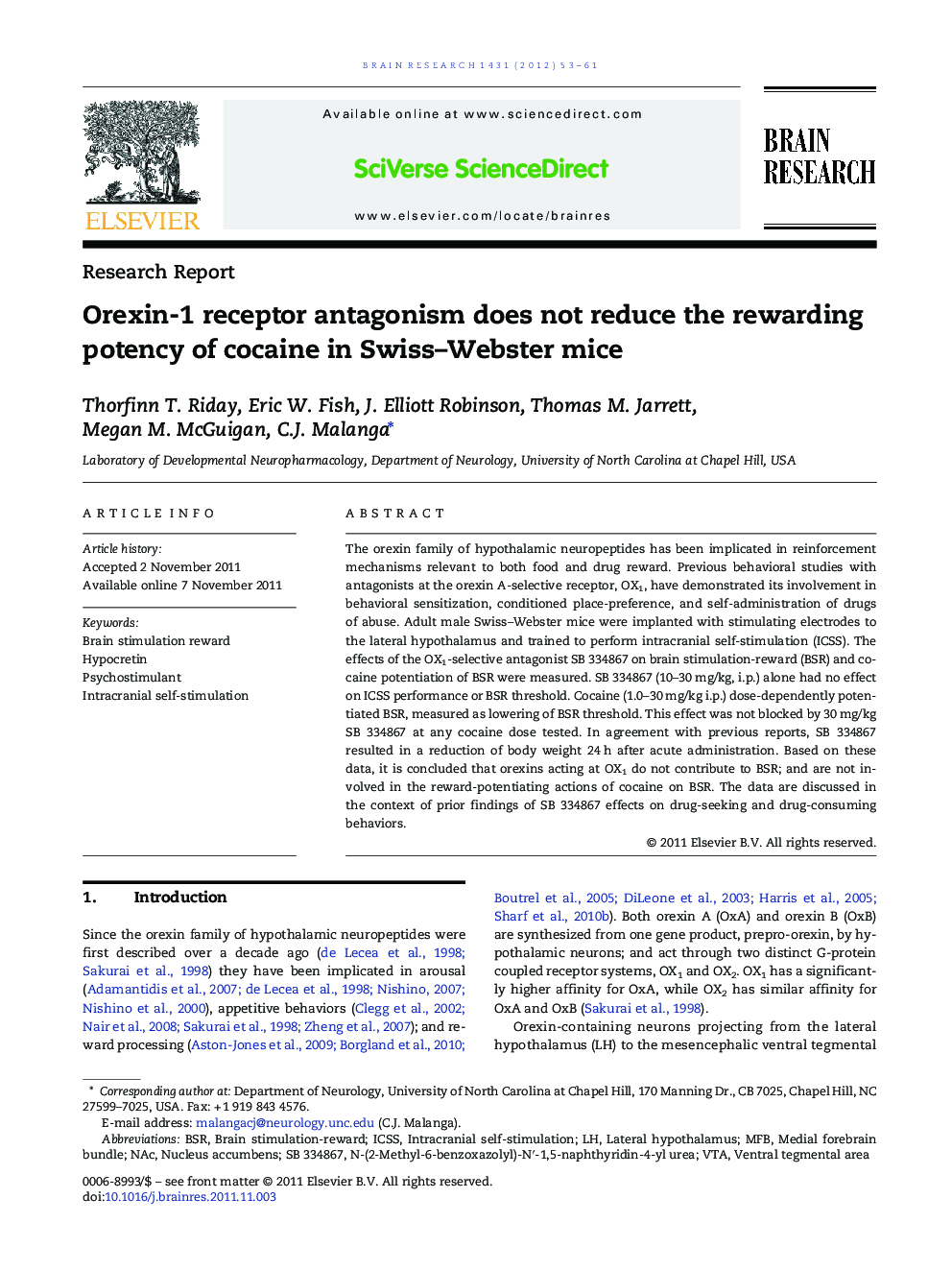| Article ID | Journal | Published Year | Pages | File Type |
|---|---|---|---|---|
| 4325503 | Brain Research | 2012 | 9 Pages |
The orexin family of hypothalamic neuropeptides has been implicated in reinforcement mechanisms relevant to both food and drug reward. Previous behavioral studies with antagonists at the orexin A-selective receptor, OX1, have demonstrated its involvement in behavioral sensitization, conditioned place-preference, and self-administration of drugs of abuse. Adult male Swiss–Webster mice were implanted with stimulating electrodes to the lateral hypothalamus and trained to perform intracranial self-stimulation (ICSS). The effects of the OX1-selective antagonist SB 334867 on brain stimulation-reward (BSR) and cocaine potentiation of BSR were measured. SB 334867 (10–30 mg/kg, i.p.) alone had no effect on ICSS performance or BSR threshold. Cocaine (1.0–30 mg/kg i.p.) dose-dependently potentiated BSR, measured as lowering of BSR threshold. This effect was not blocked by 30 mg/kg SB 334867 at any cocaine dose tested. In agreement with previous reports, SB 334867 resulted in a reduction of body weight 24 h after acute administration. Based on these data, it is concluded that orexins acting at OX1 do not contribute to BSR; and are not involved in the reward-potentiating actions of cocaine on BSR. The data are discussed in the context of prior findings of SB 334867 effects on drug-seeking and drug-consuming behaviors.
► Orexin signaling is involved in the rewarding effects of drugs of abuse. ► Effects of the OX1 receptor antagonist SB 334867 were investigated in outbred mice. ► SB 334867 does not affect electrical brain stimulation reward (BSR) in mice. ► SB 334867 does not block the ability of cocaine to potentiate BSR in mice.
